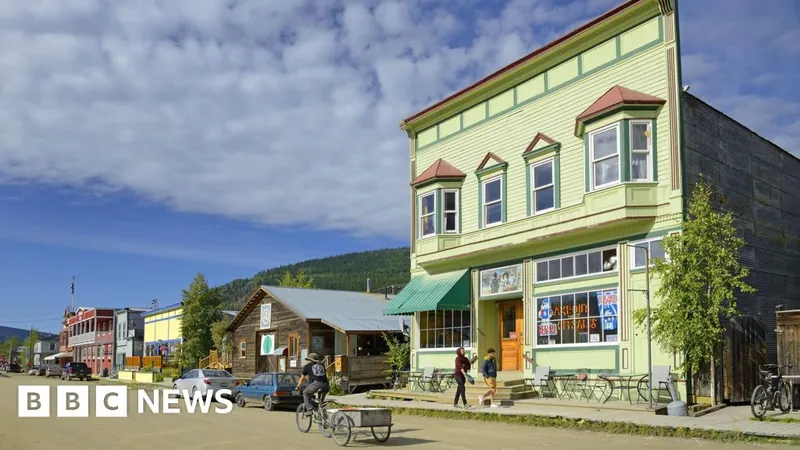
Canadian Town Council in Turmoil Over Oath to King Charles III: A Historic Standoff
2024-11-22
Author: Charlotte
A Town Council's Standoff
A town council in Dawson City, Yukon, Canada, has hit an unprecedented roadblock after newly elected members, led by mayor-elect Stephen Johnson, refused to take an oath of allegiance to King Charles III during their swearing-in ceremony. This refusal has sparked discussions about the implications of colonial legacies in Canada and the relationship between the Crown and indigenous peoples.
Historic Context
Following their election last month, the council was scheduled to be sworn in early this month. However, Johnson and his fellow council members stood in solidarity with Darwyn Lynn, their indigenous colleague from the Tr’ondëk Hwëch’in First Nation, who expressed concerns regarding the historical impact of the Crown on indigenous communities. This act of defiance has left the council unable to perform any of their official duties, as they cannot legally function under the Municipal Act until they take the oath.
Legal Implications and Community Response
“We can’t do anything legally required of us under the Municipal Act,” Johnson stated in an interview. “It’s a bit of a sticky situation.” The stakes are high, as Yukon law dictates that officials must take their oaths within 40 days of being elected, or risk having their victories rendered void. The deadline for this oath is set for December 9.
While the council has proposed an alternative oath to avoid swearing allegiance to the monarchy, officials from Yukon’s Department of Community Services have acknowledged this request but have not provided clarity on its potential approval. The community response to the situation has been mixed—some view the oath as outdated, while others consider it a vital aspect of Canada's governance structure.
Leadership Perspectives
Bill Kendrick, the outgoing mayor of Dawson City, expressed hope that a resolution would come quickly. “It gets worked out for the sake of the new council, so they can get down to business,” he said.
Historical Significance
Dawson City, with a population of around 2,400, is historically significant as the epicenter of the Klondike Gold Rush that began in 1896. The town was built upon lands that historically belonged to the Tr’ondëk Hwëch’in people, who were displaced as thousands of settlers flocked to the region for mining opportunities.
Broader Implications in Canada
In recent years, Canada has made strides towards addressing its problematic history with indigenous populations. Prime Minister Justin Trudeau acknowledged in 2017 that the country's legacy of colonialism was characterized by "humiliation, neglect, and abuse." This acknowledgment has paved the way for greater scrutiny of the Crown's relationship with indigenous communities.
This incident is not isolated; it reflects a growing trend in Canada where discussions surrounding oaths to the monarchy have intensified. In 2022, Quebec abolished the requirement for elected officials to swear allegiance to the monarchy, with lawmakers labeling it "a relic from the past." Earlier this year, a similar proposal was introduced in the national parliament, only to be defeated.
A Catalyst for Change?
As Dawson City finds itself at the center of a national conversation regarding governance, colonialism, and indigenous rights, the council's stand against the oath could serve as a significant catalyst for change—not only in Yukon but across Canada. Will this standoff spark a movement to reevaluate oaths to the monarchy? Only time will tell!









 Brasil (PT)
Brasil (PT)
 Canada (EN)
Canada (EN)
 Chile (ES)
Chile (ES)
 España (ES)
España (ES)
 France (FR)
France (FR)
 Hong Kong (EN)
Hong Kong (EN)
 Italia (IT)
Italia (IT)
 日本 (JA)
日本 (JA)
 Magyarország (HU)
Magyarország (HU)
 Norge (NO)
Norge (NO)
 Polska (PL)
Polska (PL)
 Schweiz (DE)
Schweiz (DE)
 Singapore (EN)
Singapore (EN)
 Sverige (SV)
Sverige (SV)
 Suomi (FI)
Suomi (FI)
 Türkiye (TR)
Türkiye (TR)